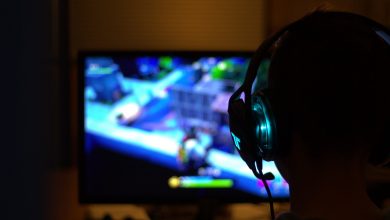10 Reasons to Stop Watching TV

Turning off the TV means earning about 4 hours a day on average. Considering that these four watches are used for activities such as exercising, developing strong social relationships outside, and reading books, the benefits are already significant. But not watching television not only adds new times to one’s life, but also makes it more interesting, energetic and fun. Trying not to watch TV for a week is enough to experience this simply. This may seem strange and boring at first, but in principle sticking to it will save you some extra time soon.
1. Television Consumes Time
According to statistical studies, an adult from the USA watches television more than 4 hours a day on average. These four hours make up 25 percent of the daily waking time. When a person suddenly thinks they have 25 percent more extra time, that equates to three extra months a year. The extra 3 months a year can enable the person to participate in all the different activities, cook their meals from scratch and even find time to write a novel. According to studies conducted in the USA, an 80-year-old person watches 116,800 hours of television for a lifetime, compared to only 98,000 hours of work. As a nation, adults watch 880 million hours of television every day, or 321 billion hours a year. Considering that a nation stopped watching TV, it would be worth a fortune for a country to imagine what it could do with this extra-created time.
2.TV Puts Stress
Spending an average of four hours a day in front of the TV, it is not surprising that everyone feels stressed and overwhelmed. Because a person with a TV habit postpones the main thing he has to do for the program he follows, such as paying the bill, finishing projects, making phone calls, arranging the house. He feels overwhelmed with everything he has to do, even exercising and spending time with his family. This overwhelming makes you feel tired and exhausted and has no energy left to anything. He just watches TV to be satisfied, and it’s a horrible cycle.
3.TV Leads Weight
Eating while watching TV loses the ability to evaluate how much you consume because your attention will be on the TV. People consume 31-74 percent more calories while watching TV, according to Eliot Blass at the University of Massachusetts. This means, on average, it can add about 300 calories per meal eaten by TV. Looking at the generalization, the majority is that at least 40 percent of the families watch television while eating. It is an obvious fact that TV is a big part of the obesity epidemic in the USA and that television actually causes weight gain.
4. Television Lowers Interest
Many people watch all the talks that are summaries of TV shows, sporting events, and sitcoms. People watching these often have little or nothing to say when asked about their real life. However, people who spend time with friends, friends, or loved ones have a lot to tell. Life is too interesting and wonderful to be spent in front of television. And it is possible to find much more interesting things to do to be active. For example, volunteering, reading, painting are just a few of them.
5.TV Disrupts Relationships
In many households in the USA, a television is on average 7 hours and 40 minutes a day. With the TV on for such a long time, it is difficult for people to find time for themselves, their families, their children to spend time together. While the TV is on, deep relationships cannot be established and experiences cannot be shared during the time spent with the family. Sitting together and watching TV don’t create a relationship. Turning off the TV and finding activities such as cooking, exercising, going for a walk with the family strengthens family ties.
6.TV Makes You Lazy
Watching TV is the opposite of exercise. When watching television, you usually sit, lie down or sleep after a short while. This causes as few calories to be burned as possible. All extra food eaten while watching TV is stored without burning. And besides this, it causes the brain to become sluggish, ie lazy. The brain does not work but does not rest as it cannot work, because it receives stimuli from the television, processes information and reacts emotionally. The brain receives every information it watches on TV, and things get tired.
7.Insulate Television
When you sit down and watch TV, nobody thinks about doing something new or exciting. It comes from uncovering new opportunities and ideas, talking to people and reading interesting things. Watching TV isolates you from people, and as long as you stay that way, everything in that person’s life will stay in the same place. If people want to do something about their lives, they should turn off the TV, get into real life, talk to people and take active action.
8.TV Is Addictive
Television can be addictive. TV addiction symptoms include:
- Using TV to calm down
- Not paying attention to appearance
- Being angry or disappointed when TV is not watched
- Feeling of lack when TV is not watched
- Loss of control while watching TV
If the idea of giving up TV for a week is anxious to the person, he or she may be dependent on TV. Fortunately, TV addiction is a habit and not a physical addiction like smoking. It can be controlled after being aware of the problem and deciding to check it.
9.TV Encourages Shopping
According to statistical studies, when an American reaches the age of 65, on average, he sees 2 million ads. People’s product and brand information and the perception of need always come from these TV commercials. For example, people cannot know that the new technology, the iPod can connect with running shoes without watching TV and they cannot perceive that they need it. Because people’s perception of their needs is determined by what they see. Watching less TV means less needing.
10. Television Increases Expenses
Watching TV is an increasingly expensive habit these days. Because, with the emergence of different cable providers, TV channels, documentary channels, and special subscription packages, service fees are increasing day by day. With all these subscription costs, it is thought that a museum or park visits are made with the family or if they go to the cinema once a month, both savings and family ties are strengthened.





